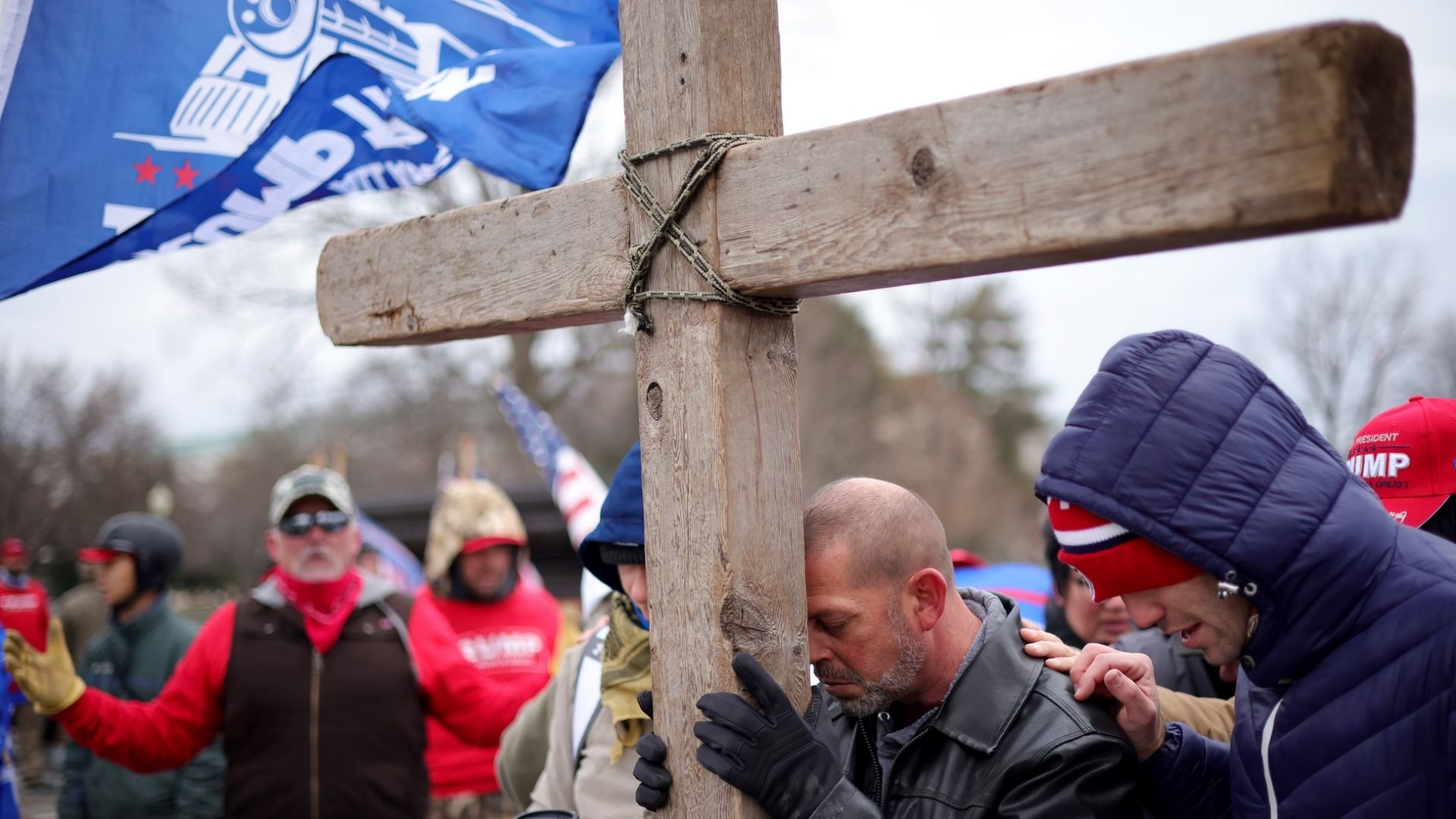On January 6, 2021, the world watched as a violent mob stormed the U.S. Capitol building. Much has been written about the irreversible damage done that day, but what especially disturbed me as a Christian was the way this violent uprising was adorned with Christian symbolism. People proudly displayed their Bibles, crosses, and “Jesus Saves” signs — along with more overt pictures of Christian nationalism, such as white Jesus wearing a MAGA hat and a sign that read, “God, Guns & Trump.”
Here were stomach-turning contradictions on full display: the Christian flag flying alongside the Confederate battle flag, “Armor of God” jackets alongside a “Camp Auschwitz” hoodie, Jesus’ name emblazoned alongside Trump’s. Perhaps the most striking contrast of all was the juxtaposition of the Christian cross and the gallows erected outside the Capitol, anticipating the vigilante execution of our nation’s leaders. These gross misrepresentations of Christianity dragged God’s name through the mud in front of the whole world.
It was this tangled web of contradictions that gave birth to the poem below, “Jesus Among the Insurrectionists.” It is a meditation on the tragic and absurd contrast between American Christian nationalism and the way of Jesus — between the violent “God ‘n’ guns” style uprising of January 6 and our Savior’s nonviolent, self-sacrificing revolution of love on Good Friday. Shane Claiborne said it well in his recent interview with PAX about gun violence: “The cross and the gun give us two very different versions of power. One of them says, ‘I am willing to kill,’ and the other says ‘I am willing to die.’”
Writing a poem is a journey, and as I invited the Holy Spirit to guide me in writing this piece, I found myself taking an unexpected turn in the second half of the poem. It is good and right to speak out against harmful distortions of the way of Jesus, but Jesus invites us to go further than that. As Christians, we are not to condemn or “cancel” our enemies, but to love them and genuinely seek their restoration — remembering that Jesus died for us while we were still God’s enemies and that we all fall short of the glory of God, dragging God’s name through the mud.
And so this poem ends, not by rebuking others, but by looking inward and upward — asking our crucified and risen King to keep our hearts pure as we seek to do justice, love mercy, and walk humbly with our God.
READ: American Altar: Poetry, Gun Violence, and the Gods to Whom We Sacrifice
Jesus Among the Insurrectionists
The Suffering Servant suffers still:
Accosted by an angry mob again,
Not in Gethsemane with clubs and swords,
But Washington D.C. with guns and words
On signs: His name twisted, taken in vain,
Numbered among the rebels on the Hill.
They raise a cross — that tool of hate
Which Christ, refusing violence, once remade
Into a sign for peace, pointing us home,
Into a plowshare, sowing His shalom —
But here the cross recalls its primal shade,
Not far from where a noose and gallows wait.
In grief, Christ prays and urges us:
“Forgive them, for they know not what they do!”
“Judge them!” we protest, ready for a fight,
But darkness must be driven out by light.
Lord, help us love our enemies like You.
Have we not all been far more treasonous?
Come lead us, Prince of Peace, who stormed
Golgotha’s hill, not armed with guns or swords
But with disarming love, dismantling
Authorities and powers, answering
Rebellion with ransom, war with words
Of “It is finished,” death with life transformed.
This poem was originally published by PAX on May 4, 2021. You can read and listen to the original here.

